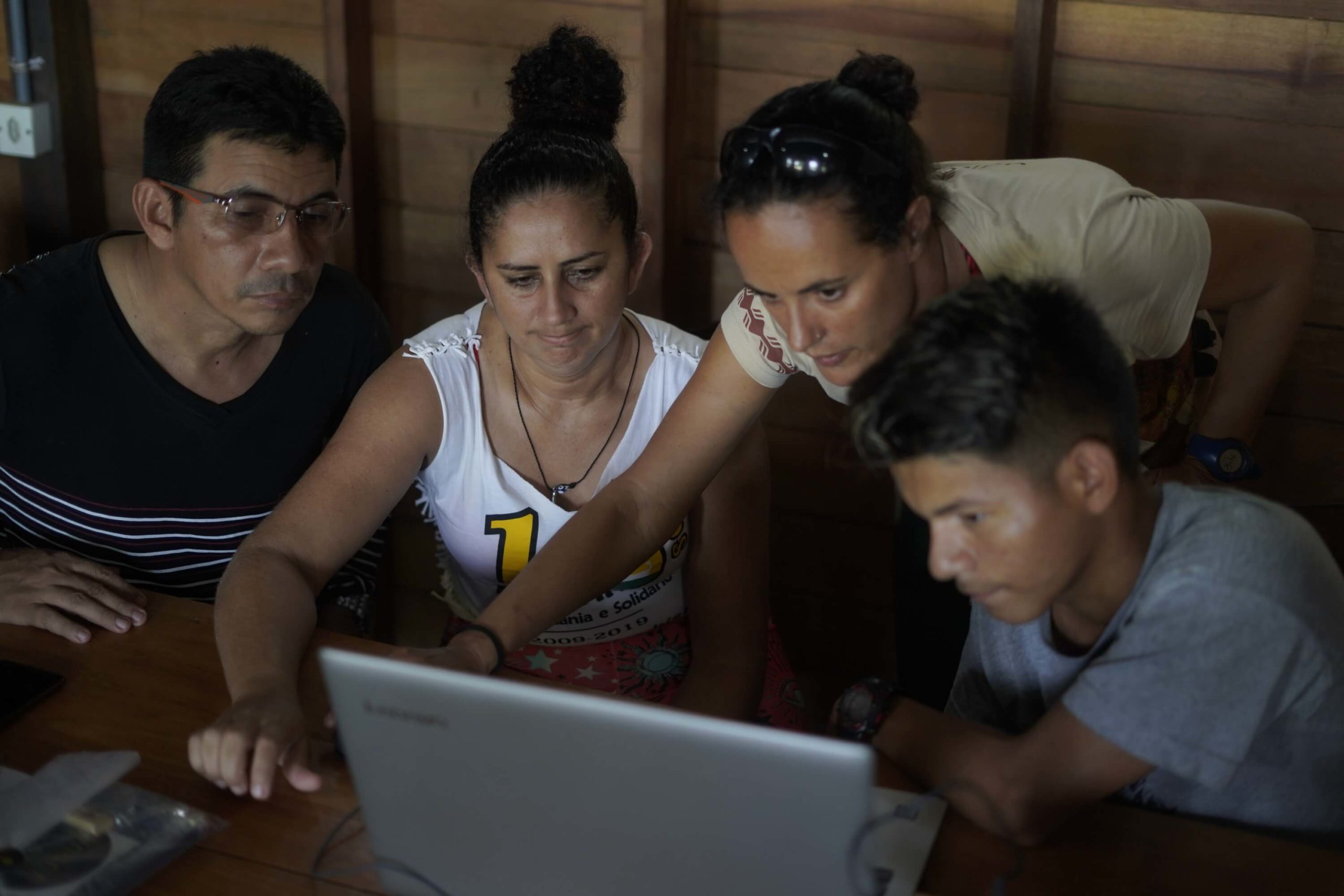The collaborative conservation in the Juruá river has been transforming the conservation paradigm on both local and regional scales. By aligning biodiversity protection with social needs, the conservation initiatives are more meaningful to the local communities and become a new way of life.
Our acting front of education and training is based on two pillars: promoting empathy toward local protagonism and conservation.
In this sense, we work with local leaders, who act as multipliers of knowledge and share positive stories, building hope and optimism.








